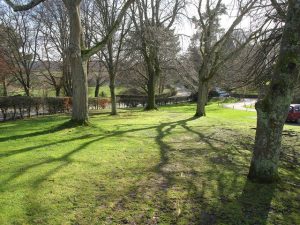Could experiencing nature virtually help us beat the lockdown blues?
.
If you can’t get out and about to get back in touch with nature, you’ve got plenty of ‘virtual’ nature places to go to:
Sidmouth Library – Posts | Facebook
Sidmouth Library Virtual Nature Table | Facebook
.
And there are other places to go to – as showcased over the weekend on BBC Radio 3:
.
As part of the BBC’s ‘Soundscapes for Wellbeing’ project, we look at how natural and musical soundscapes can affect mental health, including a groundbreaking study by the University of Exeter called ‘The Virtual Nature Experiment’, which explores how digital experiences of nature might impact wellbeing. Kate is joined by Alex Smalley from the University of Exeter, the sound recordist Chris Watson, and composer Nainita Desai.
BBC Radio 3 – Music Matters, Jackie Kay, Meredith Monk and Virtual Nature
.
The BBC asks:
BBC – Could experiencing nature virtually help us beat the lockdown blues?
.
And has a few resources to offer:
Soundscapes for Wellbeing – Canvas
.
With a little more here from the Exeter of University:
.
New nature experiment launched with BBC Music
A new experiment goes live, investigating how people respond to different kinds of digital nature experience.
The study is part of a new collaboration between the BBC and the University of Exeter, called ‘Soundscapes for Wellbeing’, aiming to connect audiences with the nature through creative TV, radio, and online programming.
The experiment is exploring the emotions people feel when they engage with natural environments through varying digital formats, from rich visual scenes to immersive natural sound recordings and big budget wildlife documentaries.
Award-winning film composer, Nainita Desai, and legendary sound recordist, Chris Watson, have both helped to create the study, which is being led by Wellcome Trust funded PhD student, Alex Smalley.
Alex said: “We’ve assembled an amazing team to create this experiment, which fuses approaches from the arts, natural history, and science. We’re hoping as many people as possible will take part, and help us understand how best to bring virtual experiences of nature to those who can’t easily get outside.”
 The experiment is hosted online and open to anyone over the age of 18. It takes around 10 minutes to complete. You can take part at bbc.co.uk/soundscapesforwellbeing.
The experiment is hosted online and open to anyone over the age of 18. It takes around 10 minutes to complete. You can take part at bbc.co.uk/soundscapesforwellbeing.
As poor mental health continues to rise in the UK, early research suggests the COVID-19 pandemic could worsen this trend. Yet lockdowns across the country have led some to seek refuge in nature and reconnect with the natural world.
Through special programming across the BBC, Soundscapes for Wellbeing is hoping to bring some of nature’s therapeutic potential to those audiences who are stuck at home.
Highlights will include Winterwatch’s Gillian Burke creating her own soundscapes for Radio 3’s Slow Radio, Lauren Laverne speaking with guests from the world of nature including the founder of Black Girls Hike, Nainita Desai and Chris Watson in conversation with Kate Molleson on Radio 3’s Music Matters, and Chris Packham interviewing Alex Smalley, on BBC Two’s Winterwatch.
Soundscapes for Wellbeing is also launching the new BBC Sound Effects archive, which allows audiences to escape aurally around the world from the comfort of their living room. The interactive website features 17,000 nature sounds in addition to recordings from all aspects of life. The site also has a mixing tool which allows users to create their own soundscapes.
Find out more about the research component of this project at virtual-nature.com.
Research news – New nature experiment launched with BBC Music – University of Exeter